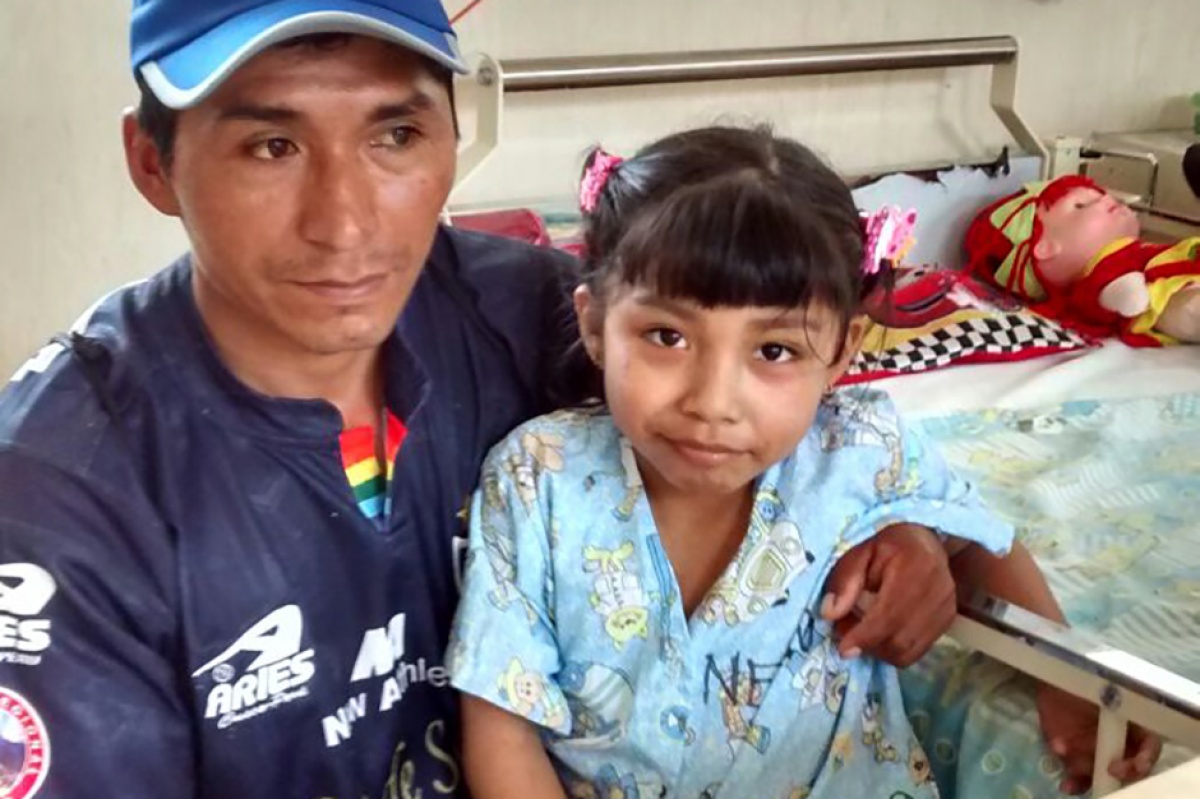Saving Melva Fernandez
Posted on Apr 7, 2016

Melva Fernandez has spent nearly all her six years in hospitals. She was 1 when she was first diagnosed with tuberculosis and placed on medication at a clinic near her home in rural Cusco, Peru. The potent TB drugs, some of which can cause permanent hearing loss, made her feel better and restored a flicker of hope to her family. But then she fell ill again.
Her doctors tested Fernandez and saw she still had active TB. They tried a new combination of treatment and got the same results. She got better, but within months would be back to where she started with a distended belly and palpable lumps in her neck and armpits. It was a puzzling cycle that would repeat itself for years until she landed two years ago at the National Institute of Children’s Health in Lima, Peru. She and her two dolls have been there ever since, with only occasional visits from her father. Her family simply can’t afford the transportation costs to visit more often.
That’s where Dr. Leonid Lecca found her. The specialist in pediatric TB and executive director of PIH in Peru, known locally as Socios En Salud, is a regular face around the children’s hospital and a doctor who believes everyone, everywhere, deserves the best care possible. Many of the pediatric patients PIH treats for TB were discovered during his rounds. As many as 73 percent of these children have been cured—an incredible rate compared to the global benchmark.
Hospital staff took Lecca to Fernandez’s bedside for a consultation. They were puzzled by the little girl with a long pony tail and tired smile whose TB had spread to her intestines, abdomen, spinal column, and other parts of her body. They treated her for extensively drug-resistant tuberculosis (XDR-TB)—the worst form of the disease—with the best combination of medication available in Peru. But still her health didn’t improve.
Lecca and his colleagues suspected something else was going on. They conducted a series of advanced genetic tests over several months to see if they couldn’t pinpoint a complication that might be preventing a cure. And they found one.
In January, doctors diagnosed Fernandez with a unique immunological disease caused by a genetic deficiency in her IL-12 receptor, which limits her body’s ability to respond to the germ that causes TB, Mycobacterium tuberculosis. No matter how many times her doctors threw the best medicine available at her illness, her body would not be able to launch a proper defense.
This is the only option for Melva.
That left her doctors with two options, neither one viable for a family of subsistence farmers living in poverty. They could place Fernandez on Interferon-gamma, an artificial protein that costs $14,000 each week. The drug would also have to be imported from the United States and kept between 2 to 8 degrees Celsius to remain effective.
The only other option was for Fernandez to receive a bone marrow transplant. Dr. Joia Mukherjee, PIH’s chief medical officer, says that such a procedure generally works for rare diseases, such as Fernandez’s. The new marrow will produce blood cells that churn out the necessary proteins to respond to bacterial diseases like tuberculosis. But how was PIH going to make that happen?
Lecca wasn’t about to give up. Several weeks ago, he began contacting international colleagues in the hope of finding someone who could help. He did, in his colleague Dr. Silvia Chiang, a pediatric infectious disease fellow at Texas Children’s Hospital. Chiang contacted other colleagues, Drs. Steven Holland and Alexandra Freeman, who agreed to perform the transplant and provide all follow-up care, pro bono, at the National Institute of Allergy and Infectious Disease in Bethesda, MD. The response was an answer to their prayers.
All Lecca had to do was get Fernandez and her father, Carlos Fernandez—neither of which had passports or visas—to Washington, D.C. Since early March, that goal has been the PIH team’s singular focus in Peru. They launched a campaign in Lima on March 30 to raise the necessary funds to cover airfare, lodging, and food for the daughter and father during their stay abroad. The money will also support the rest of Fernandez’s family, including her mother and two younger siblings, who will remain in Peru.
Lecca is confident they will reach their goal, mostly because they have to.
“This is the only option for Melva,” he says, “an option that will change and save her life.”

